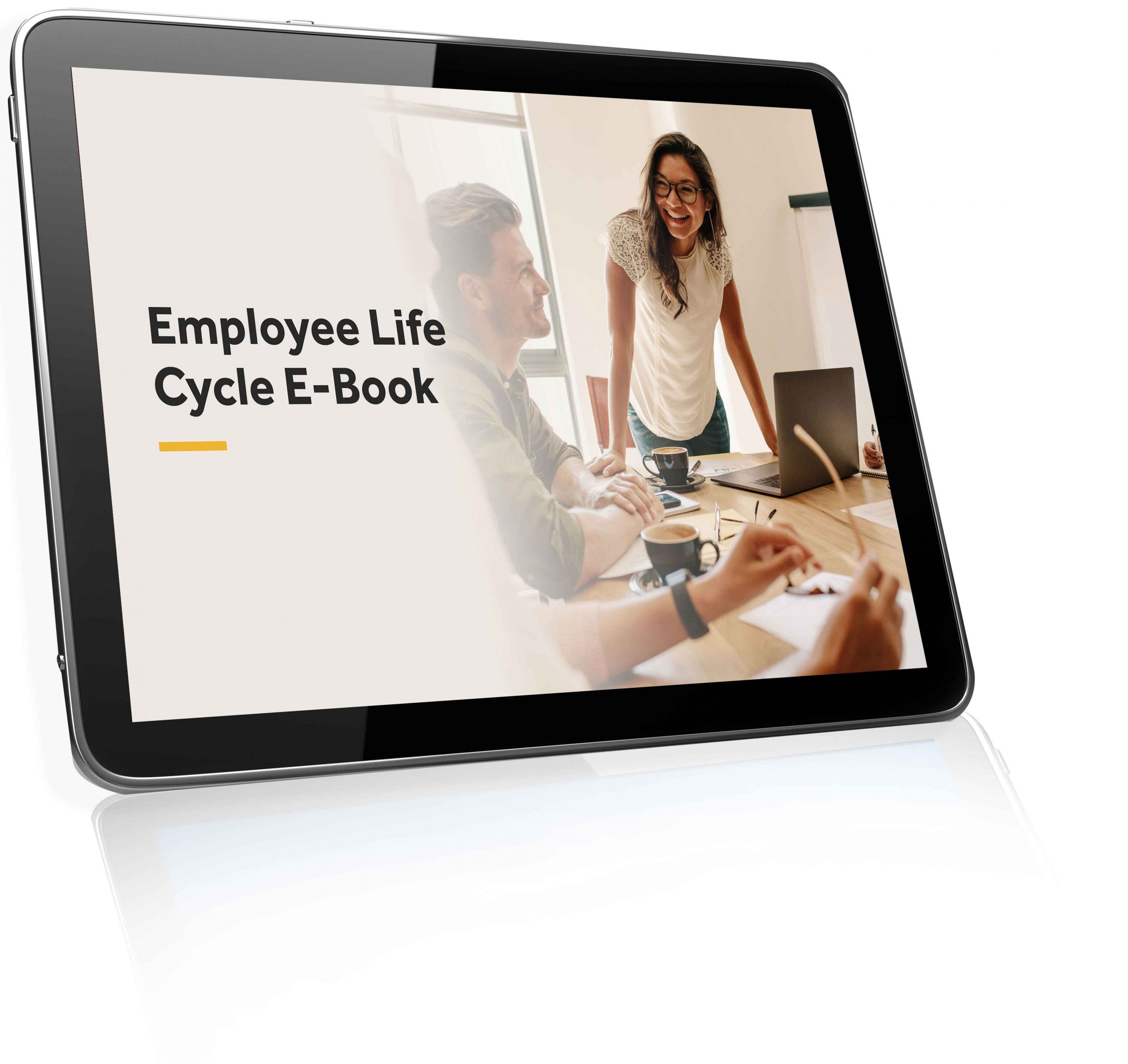
Having an effective induction program can help new employees quickly find their feet in your business and immediately hit the ground running.
For the first few weeks, a new employee’s job, work environment and colleagues are all dauntingly unfamiliar. Simultaneously, there’s always lots to learn about the business and the responsibilities of their new role. For many new recruits, the whole onboarding process can be a bit overwhelming.
Creating a tailored induction program can help the latest additions to your team feel more comfortable in their new surroundings. It allows them to develop a better understanding of your company culture, the processes of the business, and to fully grasp the expectations that come with their new role.
What is induction?
Employee induction is the process by which new employees are introduced to a new role and the organisation they will be working for. It’s a crucial component of the onboarding process and gives a new staff member the chance to learn about the company’s values and culture.
The new employee will often have a number of uncertainties and induction is the point at which the details of their role are made clear.
By the end of the induction process, the new recruit should know exactly what they’ll be doing, how they’ll be doing it, and why it’s important to the success of your business.
Why is induction important?
Offering a comprehensive induction program is one of the best ways to set your new team member up for success. The benefits include:
✔ Improved performance: An induction program helps a new employee understand their role and exactly what is expected of them. As a result, they are able to make an immediate contribution.
✔ Ensure a cultural fit: A good induction will explain the ethos of the business and help a new employee acclimatise to your company culture.
✔ Higher employee engagement: An effective induction program helps employees feel engaged with the company. It can happen before the employee starts work (for example, sending information about the company a few days before employment begins).
✔ Get to know each other: The induction process is ‘two-way’. It allows the new employee to learn about the business and company culture, while offering the employer a chance to get to know the new recruit’s goals and ambitions. It’s a great opportunity to get to know each other.
✔ Build trust: The right induction can help a new starter feel valued by their new employer. In order to build trust, it’s vital to get the relationship off to a good start.
✔ Higher staff retention: The induction process can set the tone for the employee’s entire journey with your company. Staff who are given a good first impression are likely to stay with you for longer, reducing employee turnover and enhancing the employee lifecycle.

How engaged are your staff?
Attract great staff, retain employees and improve productivity in your business by optimising your employee lifecycle. Download our FREE E-Book to learn about building an employee lifecycle that sets your team up for long-term success.
What should an induction program include?
What goes into your induction will depend on your business, its industry, and the specifics of the new employee’s role. However, most induction programs will be built around four key phases:
Pre-induction: This is when you get the new employee up to speed before they arrive for their first day. You don’t want to overwhelm new starters, so this part of the process normally covers high-level information.
You might direct them to certain pages on the company website, send them the employee handbook and company policies, or information about the company structure and any major operations involved. This is also the perfect time to collect all their important HR documents.
Induction: When the new employee comes in for their first day of work, the initial induction period begins. This might start with formal induction events or even an induction day (if you have several new employees starting in the same week, it can help them to settle if they perform the induction as a group).
You should give new employees a tour of the workplace, introduce them to their new team members, and answer any burning questions they might have. The employee should then spend time with their line manager and get to grips with the new role.
Post-induction: This phase is all about helping the new employee adjust to their role once employment has started. It can take a new employee several months to fully grasp their role. Post-induction is intended to set them up long-term. It involves gradually introducing the day-to-day processes of their role and giving them any staff training for the technical skills they need to be self-sufficient.
Follow up: This is your opportunity to get feedback from the new employee about your induction program. Is there room for improvement? This is also a good time to tick off all the items on the employee induction checklist, making sure nothing crucial has been overlooked.
Employee induction checklist
When it comes to inducting new employees, a range of key information needs to be properly explained. It’s a lot to cover, so having an employee induction checklist can be helpful for both you and your new staff. Here’s a list of topics and activities to tick off:
About the business
Company history – What’s the company’s history and the story behind your business?
Vision and purpose – What’s your business’s ‘why’?
Company culture – How do your business’s values shape the employment experience?
Current high-level goals – What are the business’s aims and how will it achieve them?
Directors and key senior employees – Who are the business’s leaders?
Organisational orientation – What are the company’s systems, hierarchies and major operations?
Working environment and facilities
Car parking
Kitchen facilities
IT set up (laptops, PCs and other devices)
Important software induction
Web access and cyber security policy
Email & phone use policy
Health and safety guidelines
Specific job hazards
Location of fire exits
Day start and end times
Lunch hours
Dress code
Flexible working policy
Job-specific information
Job title
Job description
Key responsibilities
Contribution of the role to the business
Introduction to line manager
Introduction to their key team members and collaborators
Information about key contacts
Details about the probation period (if applicable)
Performance review process
Expected hours and work days
Payroll processes
Leave entitlements and policy
HR documents and information
Signed employment contract
Signed employment agreement
Sharing the employee handbook
Bank account details
Superannuation/KiwiSaver account details
Driver’s licence, passport, and visa (if applicable)
Emergency contact details
Benefits
Expenses
Salary reviews
Online induction for remote workers
When it comes to new starters who are working remotely, out of sight doesn’t mean out of mind. Make sure you take remote new starters through a formal induction. You can use the following checklist, adapting it where necessary for their location:
Online access to any formal company induction days or events.
Video call meet and greets with key employees, such as directors, managers and team members.
A video tour of the building so they can get a feel of the way you work.
A meet and greet call with key supports, such as IT and HR.
Details of your remote working policy and expectations.
A remote workplace health and safety induction.
Online meeting and remote working etiquette.
Introduction to collaborative software.
As an employer, you have a range of responsibilities when onboarding new employees. To get all your questions answered, contact Employsure’s FREE 24/7 Advice Line on 0800 568 012.



